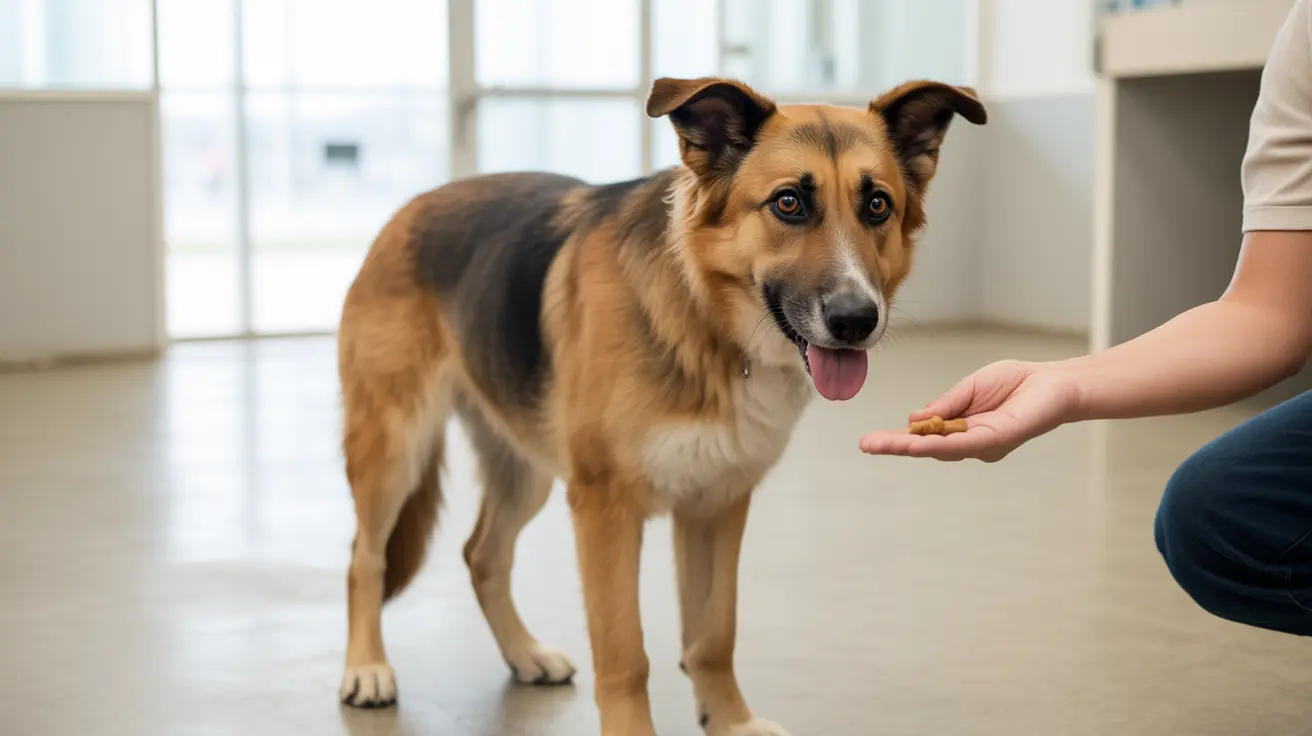Can Dogs Have Down Syndrome? Understanding the Genetics and Similar Conditions
When people notice unusual features or behaviors in their dogs, they sometimes wonder if their pet could have Down syndrome. Let's clear up the confusion: Down syndrome is a specific genetic disorder found only in humans, caused by an extra copy of chromosome 21. Dogs simply don't have the same chromosomal structure, so the condition as it exists in people doesn't occur in canines.
The Genetic Difference
Humans have 23 pairs of chromosomes (46 total), and Down syndrome results from a full or partial extra copy of chromosome 21—leading to 47 chromosomes. This causes cognitive delays, certain physical traits, and increased health risks. Dogs, on the other hand, have 39 pairs of chromosomes (78 total). There's no direct equivalent to human chromosome 21 in dogs, so the same type of chromosomal duplication can't happen.
Why Do Some Dogs Seem to Have 'Down Syndrome' Traits?
Some owners might notice their dog has physical or behavioral characteristics that look a lot like those seen in humans with Down syndrome. These similarities aren't caused by Down syndrome itself but by other genetic or developmental issues unique to dogs.
Conditions That Mimic Down Syndrome Symptoms in Dogs
- Congenital hypothyroidism: When a puppy's thyroid gland doesn't make enough hormone, you might see stunted growth, lethargy, thickened facial features, delayed opening of eyes and ears, poor coat quality, slow heart rate, and cognitive delays.
- Pituitary dwarfism: Caused by problems with the pituitary gland (which reduces growth hormone). Dogs stay unusually small with a youthful look into adulthood. They may have delayed or missing adult teeth and a soft or woolly coat that can thin over time. This is more common in breeds like German Shepherds.
- Congenital hydrocephalus: A build-up of fluid in the brain present at birth can cause a domed skull, wide-set or bulging eyes, poor coordination, trouble walking, seizures, and learning difficulties. Toy breeds and brachycephalic dogs (like Chihuahuas and Bulldogs) are more likely to be affected.
- Portosystemic shunt: An abnormal blood vessel pattern lets toxins bypass the liver. Symptoms include stunted growth, neurological issues (confusion, seizures), vomiting/diarrhea, lethargy, aggression, and behavioral changes. Some breeds are genetically predisposed.
- Chromosomal abnormalities: Rarely, dogs can have chromosomal defects that result in abnormal physical traits, cognitive delays, vision or hearing problems, and organ defects—but these aren't classified as Down syndrome.
Common Signs Owners Might Notice
- Unusual facial features: broad skulls, flat faces, slanted eyes
- Stunted growth or short limbs
- Poor muscle tone
- Cognitive/developmental delays
- Poor coat condition
- Vision or hearing impairments
If you spot these signs in your dog—especially if several appear together—it points toward one of these other conditions rather than Down syndrome itself.
Diagnosis: What Happens at the Vet?
Your veterinarian will start with a thorough exam. They might recommend bloodwork (to check hormone levels), diagnostic imaging like ultrasound or MRI (to look for structural issues), and sometimes targeted genetic testing. The goal is to find out exactly what's causing your dog's symptoms so treatment can be tailored appropriately.
Treatment Options and Daily Care
- Treatment depends on the diagnosis: hormone replacement therapy for hypothyroidism or pituitary dwarfism; surgery or medication for portosystemic shunt or hydrocephalus.
No home remedies will fix genetic or developmental disorders—medical management is key. Owners should focus on good nutrition and creating a safe environment (for example: stair gates for mobility-challenged pets). Mental stimulation with toys and activities helps keep your dog engaged. Regular vet visits are essential for monitoring progress.
Your patience matters too—dogs with special needs benefit from supportive owners who celebrate every small victory.
If You're Concerned About Your Dog
If your puppy or adult dog shows abnormal facial features, slow growth, poor coordination, mental delays, vision/hearing problems—or any combination—don't wait. Get them checked out by your veterinarian as soon as possible. Early diagnosis often means better quality of life for your pet.
The Bottom Line
No matter how much some canine conditions might resemble human Down syndrome on the surface,dogs can't actually have human-type Down syndrome. Their own unique genetic makeup leads to different disorders that sometimes look similar but require their own specific care plans. If you're ever unsure about your dog's health or development—your vet is always your best resource.





